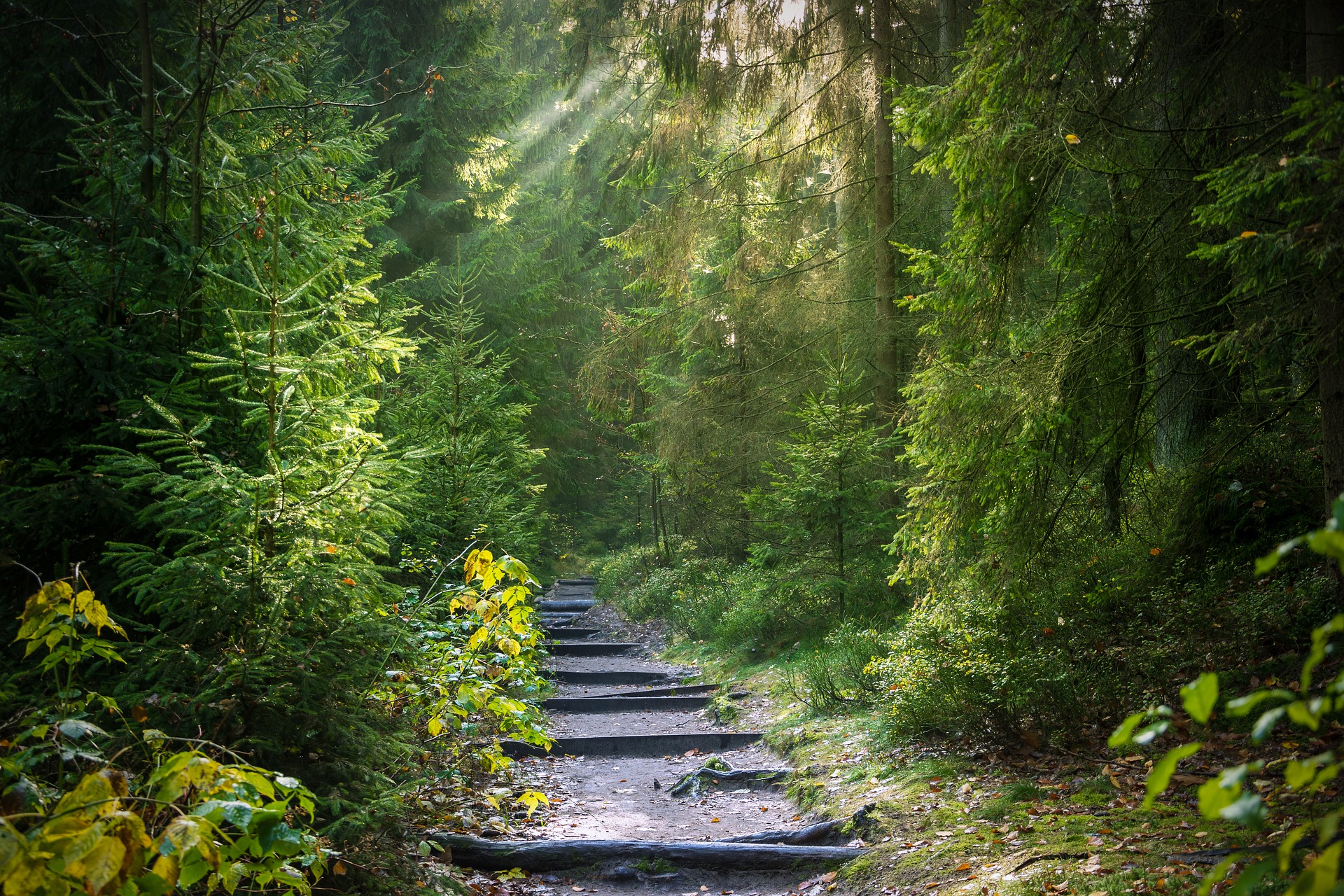
A few weeks ago I wrote a post about how Adverse Childhood Experiences (ACE) can contribute to addiction, but now we need to look at what can we do to heal. Recovery comes to mind, as well as talk therapy, art therapy, journaling, exercise, and of course, nature.
Let’s back up a minute and go back to childhood where most trauma happens. The ACE study acknowledges that when children are impacted by trauma, their symptoms may not be readily noticeable until later in life when things such as obesity, addiction, or chronic illnesses manifest.
Before I tuned into Dr. Filleti’s ACE study, I unwittingly did my own undocumented research while working at the hospital. The first ten years of my nursing I worked in the ED and on telemetry and surgical units. The last fifteen years I’ve worked in psych, and that’s when the pieces all started to fit together. Time and time again I’d come across patients struggling with obesity, chronic diseases, and addiction. There is an overwhelming correlation between the aforementioned diseases in those who had experienced some form of trauma as a child.
Of course, it made sense to me that food, alcohol, tobacco, or any addictive substance or habit would enter the picture. It’s mostly about the need to numb feelings and perhaps memories that the person no longer wants to remember. It’s much easier to get drunk, high or eat in order to self-medicate to forget about the painful episodes. Food and substances became the solution. In those with weight issues, perhaps some had a subconscious desire to gain weight in order to repel perpetrators. Our minds are powerful. Our emotions are sneaky. We can’t always verbalize or understand why we do what we do.
Once in recovery, anyone who has been through the process will understand the layers and layers that need to be scraped away until we can discover the underlying kernels that drove the behavior.
I am angry and appalled at the prevalence of sexual abuse in our society. It seems when you work on medical units, that important psychosocial fact never comes up. No one wants to talk about the traumas of the past, and as our healthcare system currently stands, most doctors treat the symptoms. It’s quite unusual to find a doctor who will stop and ask, why is my patient obese? Why is my patient self-medicating with alcohol, pills, sex, gambling? No one wants to delve into the root causes because it takes too much time. I was told at one hospital, “We don’t want to open Pandora’s Box.” In one respect, I understand the logic because in today’s healthcare environment a patient’s stay on a psych unit may only last three to five days; you can’t tackle years of abuse history and all of the emotions that go with that in a few days, but shouldn’t we come up with a better plan than to ignore the huge piece of the puzzle?
Our current healthcare system does adults and kids a grave disservice by not looking at the root cause of their problems. Shouldn’t we focus on ways to address the whole person, and help them heal instead of medicating them?
Yes, we should, but here again, the medical team is more apt to shrug and say, “There’s no easy answer so let’s move on.” I asked one psychiatrist why he thought it was appropriate to medicate a child when clearly the family situation was the root of the distress. His answer, “The theory is that maybe the medication will help them deal with it better.”
Okay, so now we’re going to take an abused child out of the home, plunk them down in foster care, and disregard all the emotional turmoil that goes with uprooting a child from their environment; neglect to help them work through the emotional aspect of their trauma, give them a pill, and then wonder why we have an addiction problem in America. It’s beyond absurd and explains in many cases, why the cycle of addiction perpetuates itself.
I can tell you that when I found beer and pot at twelve years old, I liked that I didn’t feel scared anymore. I liked that those two substances changed the way I felt. Of course, I went on to be an alcoholic. Of course, kids will find a substance to change the way they feel: the hurt, the pain, the fear… .
Abuse of all sorts is prevalent in our culture: sexual, physical, verbal and emotional—we need to find ways for people who have been through trauma to mend, and nature cannot be overlooked as a powerful healer.

I think back to my childhood and there’s no doubt in my mind that I would’ve sunk deeper and faster into addiction at a younger age if I didn’t have the wholesome reprieve of my horse. I spent most days, all day—outdoors. I had access to miles of trails, fields, woods and numerous ponds and streams. It’s hard to stay depressed or ruminate about your troubles when surrounded by the beauty of nature; the sounds of nature; when everywhere you look—if you pay attention, you can see the circle of life plays out before your eyes. I remember collecting gelatinous strings that we’d, (my friend and her sister also had a horse and the three of us often rode together) fish out of the pond. We’d fill a jar with pond water and stash the whole cache of eggs on a shelf in the barn. It seemed like every day something new happened with those eggs, and pretty soon we’d have tadpoles and as their legs sprouted, little frogs.
I loved the spring because the creeks would overflow and the sound of the wind and water made me forget that my mother would be drunk or passed out when I got home.
I didn’t know that when I traipsed through meadows and woods on horseback that the trees were also lifting me up by secreting a chemical called phytoncides. Phytoncides do a body good. They can help reduce stress, increase our immune systems, and decrease anxiety. We need the natural world. We need to see birds, flowers, and trees. Nature is intelligent. Consider the Aspens—they’re one of the largest living organisms. The mother tree shoots off sprouts for new trees to grow. They engage in sophisticated underground communication, using their roots to transmit messages.
When one tree is diseased, the other trees send signals to prop it up and try to help it survive. In a strange way, I think they help prop us up too. Who can look at a knotted or twisted tree and not think that they survived and withstood many harsh storms—if they can do it, I can too?

Encouragement to get off of social media and step out into nature cannot be overlooked. People are under fluorescent lights on their jobs, and after work, jump in their cars to run errands, ferry kids, or any number of activities that keep us indoors or in our cars—then on to home and a deluge of family needs. Is there any wonder why people are stressed? Even people who don’t have trauma histories or addiction issues to contend with—the endless demands of life in the modern world cause enormous stress even for the well-balanced individual. We all have struggles, but if we can deal with those struggles better by spending time with nature, why not? Why not take advantage of all of the gifts that Mother Nature has bestowed upon us? We can heal. We can turn away from the madness and turn toward nature to boost our spirits, boost our immune systems, and yes, alleviate stress.
5 Tips to bring the outdoors inside:
1.) If you can’t take care of houseplants because you over or underwater, buy succulents. Put them in a sunny spot and they will forgive you if you forget about them.
2.) Keep an eye out for lovely rocks that you can stack in a decorative bowl. Use them like worry stones. Feel the texture; visualize sending any negative emotions into the stone. Release.
3.) Set up a small desktop water feature in a room where up spend a lot of time. Everyone loves the soothing sound of water.
4.) Hang landscape pictures.
5.) Hang up a hummingbird or bird feeder where you have an unobstructed view.
We all have something within us that needs healing. Reach out and step out into nature. Visit your parks, walk your neighborhood, and pay attention. Even in the urbanest environments, you’ll find green life pushing through the cracks. Enjoy!
Lisa is the author of the multi-award winning book, Raising the Bottom: Mindful Choices in a Drinking Culture. After short stints where she trained polo horses, worked as a flight attendant, hairdresser, and bartender, she revamped her life and settled in as a registered nurse. For the past twenty-nine years has worked with hundreds of women to overcome alcoholism, live better lives and become better parents. She was prompted to write Raising the Bottom when she realized after twenty plus years of working in hospitals, that doctors and traditional healthcare offer few solutions to women with addiction issues. You can start reading for free on Amazon. Follow her on Twitter @LBoucherAuthor and Instagram
